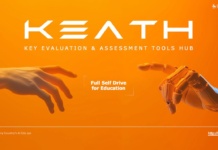
Professor Chris Imafidon demonstrates how the latest tools and AI technologies are boosting national tax revenues.
In the heart of Africa, a continent blessed with abundant natural resources, lies an untapped goldmine – not of minerals, but of tax revenue. As governments grapple with the challenge of funding critical development projects, the solution may lie in embracing artificial intelligence and cutting-edge technology to revolutionize tax collection systems.
Consider the fictional nation of the United States of East Africa (USEA), rich in diamonds and oil, yet struggling to translate its natural wealth into prosperity for its citizens. Like many African countries, USEA faces a common dilemma: vast mineral resources, but limited tax revenue to0 fund essential services and infrastructure.
The AI Revolution in Tax Collection
Artificial intelligence offers a transformative approach to addressing USEA’s tax collection challenges. By leveraging AI-powered systems, the country can:
Uncover Hidden Revenue: AI algorithms can analyze vast amounts of data from multiple sources, identifying discrepancies between reported income and actual economic activity in the resource sector. This could potentially uncover millions in unreported revenue from mining and oil companies.
Combat Transfer Pricing: Multinational corporations often use complex pricing schemes to shift profits offshore. AI can detect patterns indicative of transfer pricing abuse, ensuring that USEA receives its fair share of tax from resource extraction.
Streamline Compliance: Automated systems can simplify tax filing for both corporations and individuals, reducing the burden on taxpayers and increasing voluntary compliance. In a country where the informal economy thrives, this could bring millions into the formal tax system.
Optimize Auditing: AI can prioritize high-risk cases for audits, allowing tax authorities to focus their limited resources on the most likely instances of tax evasion in the resource sector.
Practical Steps for Implementation
While the potential of AI in tax collection is immense, implementing such systems in USEA faces significant challenges. Here’s a roadmap to overcome these hurdles:
Invest in Digital Infrastructure: USEA must prioritize the development of robust digital networks and data centers. This could be funded through public-private partnerships with tech companies eager to tap into Africa’s growing market.
Build Local AI Expertise: Establish partnerships with leading tech universities to create AI and data science programs. Offer scholarships and internships to nurture homegrown talent.
Start with Pilot Projects: Begin with targeted AI implementations in specific areas of tax collection, such as VAT on mineral exports. Use these successes to build momentum and public support.
Address Data Privacy Concerns: Develop comprehensive data protection laws that balance the need for information with citizens’ privacy rights. Transparency in how data is used will be crucial for public trust.
Collaborate Regionally: Partner with neighboring countries to share best practices and potentially create a regional AI tax hub, pooling resources and expertise.
Engage the Private Sector: Work with local tech startups to develop AI solutions tailored to USEA’s specific needs. This approach can foster innovation and create jobs in the tech sector.
Implement Change Management: Provide comprehensive training for tax officials to adapt to new AI-driven systems. Address fears of job displacement by emphasizing how AI will augment, not replace, human roles.
The Path Forward
Implementing AI in USEA’s tax system is not without challenges. Resistance from vested interests, technological hurdles, and the need for significant upfront investment are all formidable obstacles. However, the potential rewards far outweigh these difficulties.
By embracing AI, USEA could increase its tax revenue by an estimated 30-40% within five years. This additional funding could transform the nation, providing resources for better healthcare, education, and infrastructure.
Moreover, a more efficient and transparent tax system would attract foreign investment, creating a virtuous cycle of economic growth and increased tax revenue.
The time for action is now. As global competition for investment intensifies and traditional resource-based economies face pressure from renewable energy transitions, USEA and other African nations must leverage every tool at their disposal to secure their financial futures.
Conclusion
AI has the potential to revolutionize tax administration in developing nations and oil-based economies. By leveraging AI-driven automation, these countries can enhance efficiency, combat tax evasion, and optimize revenue generation. By embracing AI, governments can create a more equitable, sustainable, and prosperous future for their citizens.
AUTHOR/CONTRIBUTOR:
Professor Chris Imafidon, is a Wall Street Journal bestselling author, and Mentor to multi-millionaire tech entrepreneurs. He is a multi-Guinness World record holder; Internationally renowned adviser to monarchs, governments, presidents and corporate leaders; Coach to New York Times Bestellers and a Sunday Times Op-ed author. He is a 5X International bestselling author, and a celebrated royal biographer. His research and innovation have been recognized internationally, winning multiple awards in many continents across multiple disciplines and his mentees are global leaders in pioneers and also world record holders. He is an award winning chair of HM Queen Elizabeth’s Platinum Jubilee programme on STEM & Education. He recently chaired the Coronation series on Artificial Intelligence’s impact on education and has authored royal biographies. [Twitter (X) @ChrisImafidon; Instagram @CoImafidon, Linkedln and Facebook – ProfessorChrisImafidon]










